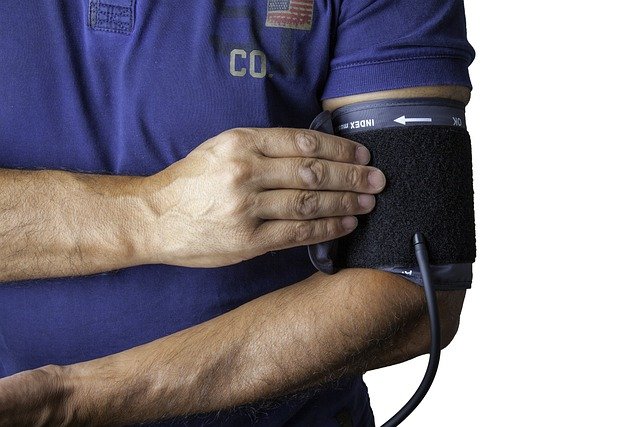3 Ways Seniors Can Manage Hypertension Symptoms
High blood pressure affects nearly half of all American adults, with seniors being particularly vulnerable to this silent condition. Managing hypertension becomes increasingly important as we age, since uncontrolled blood pressure can lead to serious complications including heart disease, stroke, and kidney problems. Fortunately, there are proven strategies that can help seniors effectively manage their hypertension symptoms and maintain better cardiovascular health through practical lifestyle modifications and proper medical oversight.

How Can Natural and Home Remedies Help Control Blood Pressure?
Natural approaches offer seniors effective ways to manage hypertension symptoms without relying solely on pharmaceutical interventions. Dietary modifications represent one of the most powerful tools available. The DASH (Dietary Approaches to Stop Hypertension) eating plan emphasizes fruits, vegetables, whole grains, and lean proteins while limiting sodium intake to less than 2,300 milligrams daily. Foods rich in potassium, such as bananas, spinach, and sweet potatoes, help counteract sodium’s effects on blood pressure.
Regular physical activity serves as another cornerstone of natural blood pressure management. Seniors can benefit from low-impact exercises like walking, swimming, or tai chi for 30 minutes most days of the week. Even gentle activities like gardening or household chores contribute to cardiovascular health. Weight management also plays a crucial role, as losing even modest amounts of weight can produce meaningful reductions in blood pressure readings.
Stress reduction techniques offer additional benefits for hypertension management. Deep breathing exercises, meditation, and progressive muscle relaxation can help lower both acute stress responses and chronic blood pressure levels. Many seniors find that establishing consistent sleep patterns, typically seven to eight hours nightly, also supports better blood pressure control.
What Lifestyle Changes Make the Biggest Difference?
Beyond dietary modifications, several lifestyle adjustments can significantly impact hypertension management for seniors. Limiting alcohol consumption to moderate levels - no more than one drink daily for women and two for men - helps prevent blood pressure spikes. Complete smoking cessation remains essential, as tobacco use damages blood vessels and accelerates cardiovascular disease progression.
Hydration plays an often-overlooked role in blood pressure regulation. Seniors should aim for adequate fluid intake while monitoring how their bodies respond to different beverages. Limiting caffeine intake, particularly from coffee and energy drinks, may help some individuals achieve better blood pressure stability throughout the day.
Social connections and mental health support contribute meaningfully to overall cardiovascular wellness. Seniors who maintain active social lives and seek help for depression or anxiety often experience better blood pressure control. Community programs, senior centers, and support groups provide valuable resources for maintaining these important connections while learning additional management strategies from peers facing similar challenges.
When to Visit a Doctor for Hypertension Management?
Professional medical oversight remains essential for safe and effective hypertension management in seniors. Initial doctor visits should occur when blood pressure readings consistently exceed 130/80 mmHg during home monitoring or routine checkups. However, seniors should seek immediate medical attention if they experience readings above 180/120 mmHg, especially when accompanied by symptoms like chest pain, shortness of breath, or severe headaches.
Regular monitoring schedules depend on individual risk factors and current blood pressure levels. Most seniors with diagnosed hypertension benefit from monthly check-ins initially, transitioning to quarterly visits once stable control is achieved. Home blood pressure monitoring provides valuable data between appointments, helping healthcare providers make informed treatment adjustments.
Certain warning signs warrant prompt medical evaluation regardless of scheduled appointments. These include persistent dizziness, unusual fatigue, swelling in legs or feet, irregular heartbeat, or sudden changes in vision. Seniors taking blood pressure medications should also consult their doctors before making significant dietary changes or starting new exercise programs, as these modifications may require treatment adjustments.
Healthcare providers can also identify secondary causes of hypertension that may require specialized treatment approaches. Conditions like sleep apnea, kidney disease, or thyroid disorders sometimes contribute to elevated blood pressure in seniors. Professional evaluation ensures comprehensive care that addresses all potential contributing factors.
Managing hypertension effectively requires a comprehensive approach combining natural remedies, lifestyle modifications, and appropriate medical supervision. Seniors who embrace dietary changes, regular physical activity, and stress management techniques often achieve meaningful improvements in their blood pressure control. However, professional medical guidance remains essential for monitoring progress, adjusting treatments, and preventing complications. By combining these evidence-based strategies, seniors can take control of their hypertension symptoms and maintain better cardiovascular health throughout their golden years.
This article is for informational purposes only and should not be considered medical advice. Please consult a qualified healthcare professional for personalized guidance and treatment.




